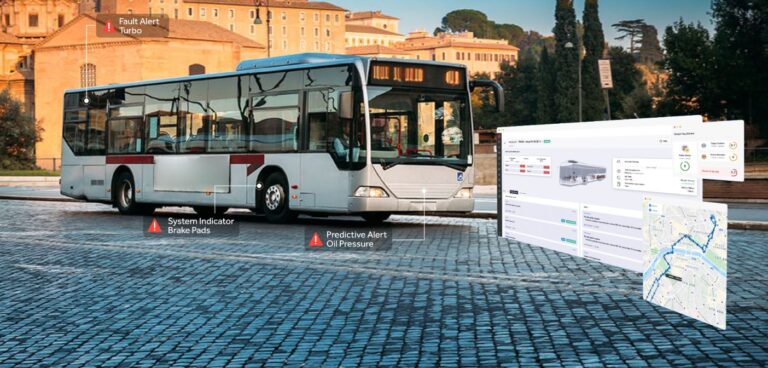Real-time predictive fleet maintenance platform developer Stratio has secured US$12m (£8.9m) in Series A funding to increase its R&D, double its headcount and speed up the overall time-to-market for its solution.
Stratio’s AI-based predictive fleet maintenance is designed to prevent breakdowns from happening, potentially saving people from the hassle of public transportation delays, postponed deliveries, or late arrival of goods.
The company added downtime becomes a critical problem for fleets responsible for food, medicine, or healthcare supplies transportation. By harnessing the power of data, and using augmented intelligence, Stratio provides real-time actionable insights through a scalable platform that collects, analyses, and explains when the next breakdown will happen.
Its fully explainable AI system allows fleet managers and operators to easily understand the reasons behind each potential breakdown, moving away from a reactive maintenance approach that leads to vehicle downtime, lost revenue, unhappy customers, and a damaged reputation.
“Stratio’s contribution to zero downtime impacts the global economy and people’s lives every single day. Real-time predictive fleet maintenance provides a magnified look that leads to better planning and better decisions. That means higher quality and cheaper public transportation, on-time deliveries while serving more customers at a lower cost” said Stratio’s co-founders, Ricardo Margalho, CEO and Rui Sales, president.
“Stratio’s technology is empowering fleet operators across the globe by providing them the most comprehensive and easy-to-manage platform in this space. We believe that this technology will soon be available to every vehicle around the world and that enabling a zero-downtime future will change transportation as we know it.”
Stratio has customers across EMEA, US, LATAM, and APAC. Its clients include Ford Trucks, Arriva, Keolis, RATP Dev and Go-Ahead. The company reported its annual recurring revenue has grown 2,700% since its seed investment round, while it has invested an average of 65% of its budget in R&D in that same period.





